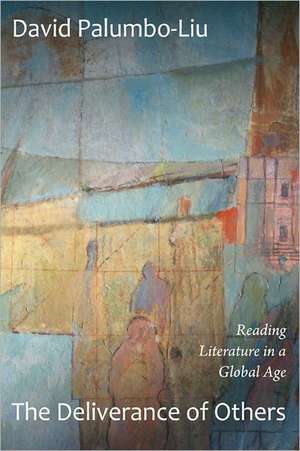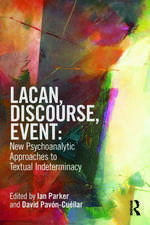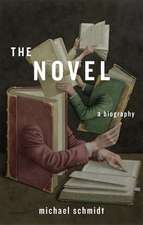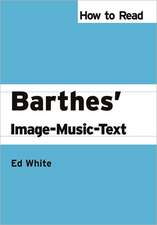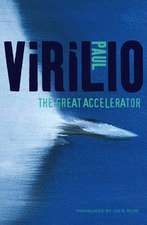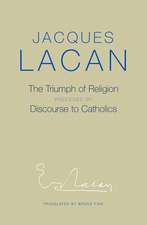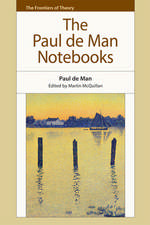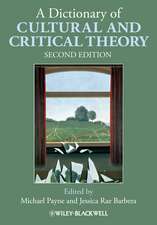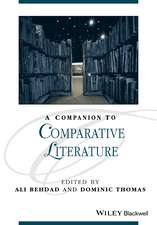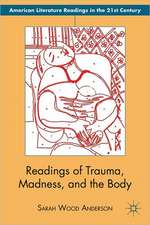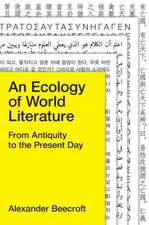The Deliverance of Others – Reading Literature in a Global Age
Autor David Palumbo–liuen Limba Engleză Paperback – 4 iun 2012
Preț: 238.39 lei
Nou
Puncte Express: 358
Preț estimativ în valută:
45.61€ • 47.63$ • 37.67£
45.61€ • 47.63$ • 37.67£
Carte tipărită la comandă
Livrare economică 15-29 aprilie
Preluare comenzi: 021 569.72.76
Specificații
ISBN-13: 9780822352693
ISBN-10: 0822352699
Pagini: 240
Ilustrații: 6 photographs
Dimensiuni: 152 x 226 x 18 mm
Greutate: 0.34 kg
Editura: MD – Duke University Press
ISBN-10: 0822352699
Pagini: 240
Ilustrații: 6 photographs
Dimensiuni: 152 x 226 x 18 mm
Greutate: 0.34 kg
Editura: MD – Duke University Press
Recenzii
"Certain to be an important and influential book, The Deliverance of Others examines the profound challenges that the 'contemporary' historical moment poses to literary novel-writing in the early twentieth-first century, when the fine line between a 'sufficient' and an 'excessive' measure of otherness seems to have been trespassed, when, as David Palumbo-Liu puts it in his extraordinary reading of J. M. Coetzee's Elizabeth Costello, readers of the novel are asked to imagine themselves confronting a 'tidal wave of difference' that exceeds the specific capacities of realist form and the more general compact that literary writing offers to strike between historical conditions and the liberal, sympathetic imagination." Ian Baucom, author of Specters of the Atlantic: Finance Capital, Slavery, and the Philosophy of History"In The Deliverance of Others, the distinguished critic David Palumbo-Liu tackles broad questions of aesthetics and ethics in this 'age of otherness and virtual proximity.' By contrasting utilitarian notions of political economy with those of a system based on interdependent and ethically connected communities, he goes to the essential: How do we define truth in relation to reason and ethics and how do we understand the ways that literature and literary composition resonate differently in different global spaces, each with varying notions of rationality and choice?" Françoise Lionnet, co-editor of The Creolization of Theory
"Certain to be an important and influential book, The Deliverance of Others examines the profound challenges that the 'contemporary' historical moment poses to literary novel-writing in the early twentieth-first century, when the fine line between a 'sufficient' and an 'excessive' measure of otherness seems to have been trespassed, when, as David Palumbo-Liu puts it in his extraordinary reading of J. M. Coetzee's Elizabeth Costello, readers of the novel are asked to imagine themselves confronting a 'tidal wave of difference' that exceeds the specific capacities of realist form and the more general compact that literary writing offers to strike between historical conditions and the liberal, sympathetic imagination." Ian Baucom, author of Specters of the Atlantic: Finance Capital, Slavery, and the Philosophy of History "In The Deliverance of Others, the distinguished critic David Palumbo-Liu tackles broad questions of aesthetics and ethics in this 'age of otherness and virtual proximity.' By contrasting utilitarian notions of political economy with those of a system based on interdependent and ethically connected communities, he goes to the essential: How do we define truth in relation to reason and ethics and how do we understand the ways that literature and literary composition resonate differently in different global spaces, each with varying notions of rationality and choice?" Francoise Lionnet, co-editor of The Creolization of Theory
"Certain to be an important and influential book, The Deliverance of Others examines the profound challenges that the 'contemporary' historical moment poses to literary novel-writing in the early twentieth-first century, when the fine line between a 'sufficient' and an 'excessive' measure of otherness seems to have been trespassed, when, as David Palumbo-Liu puts it in his extraordinary reading of J. M. Coetzee's Elizabeth Costello, readers of the novel are asked to imagine themselves confronting a 'tidal wave of difference' that exceeds the specific capacities of realist form and the more general compact that literary writing offers to strike between historical conditions and the liberal, sympathetic imagination." Ian Baucom, author of Specters of the Atlantic: Finance Capital, Slavery, and the Philosophy of History "In The Deliverance of Others, the distinguished critic David Palumbo-Liu tackles broad questions of aesthetics and ethics in this 'age of otherness and virtual proximity.' By contrasting utilitarian notions of political economy with those of a system based on interdependent and ethically connected communities, he goes to the essential: How do we define truth in relation to reason and ethics and how do we understand the ways that literature and literary composition resonate differently in different global spaces, each with varying notions of rationality and choice?" Francoise Lionnet, co-editor of The Creolization of Theory
Notă biografică
Cuprins
Preface vii
Acknowledgments xiii
Introduction 1
1. When Otherness Overcomes Reason 27
2. Whose Story Is It? 67
3. Art: A Foreign Exchange 96
4. Pacific Ocean Feeling: Affect, Otherness, Mediation 133
Conclusion 179
Notes 197
Bibliography 207
Index 215
Acknowledgments xiii
Introduction 1
1. When Otherness Overcomes Reason 27
2. Whose Story Is It? 67
3. Art: A Foreign Exchange 96
4. Pacific Ocean Feeling: Affect, Otherness, Mediation 133
Conclusion 179
Notes 197
Bibliography 207
Index 215
Descriere
Discusses how much otherness is acceptable, as opposed to how much is excessive, disruptive, and disturbing
